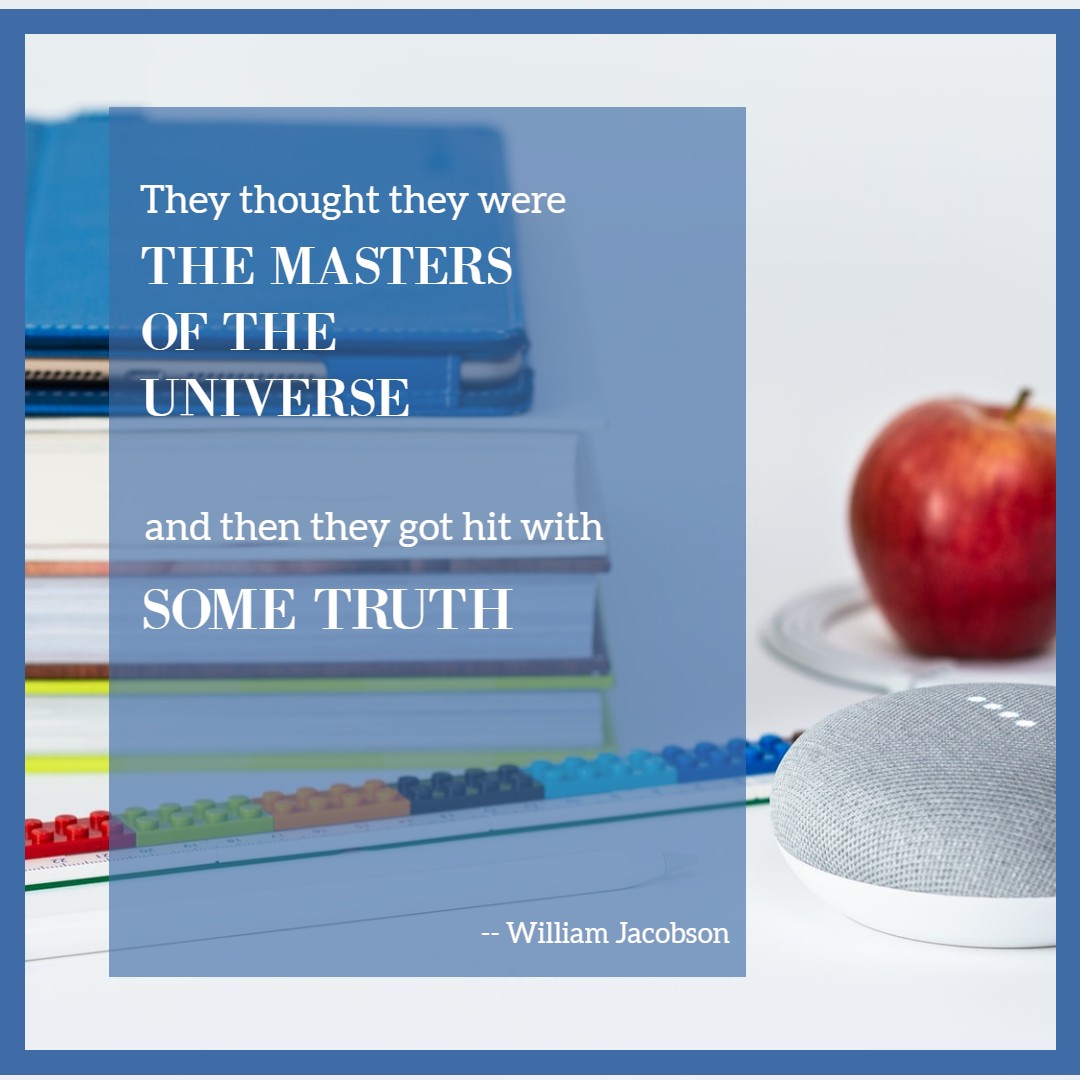Full disclosure: empty-nest parent here. I know I’m not up-to-date on the latest parenting how-tos. This schooling by Zoom has completely passed me by. I have no idea what SPF they’re recommending in kids’ sunscreen this year. And if I had to buy some baby food, I might walk right down the aisle, not recognizing that all those plastic packs and squeeze tubes ARE the baby food.
One thing I do know is that schools are filling their curriculum with ideas drawn out of the 1619 Project. Has it reached your kids’ school yet? You’d know better than I, but with the speed that this document has spread over the country, I’d assume it’s either in their lessons or coming up shortly.
If it was my kids, I’d say, Not so fast.
And good luck with that.
Parents who don’t like the 1619 Project can find tools to push back. One I recommend is this webinar sponsored by Legal Insurrection.
William Jacobson, LI’s president, is a soft-spoken Cornell law professor and veteran of campus culture wars like these. Either he has a lot of spine, or his website statistics tell him that he’s filling a need. He and his staff keep a close eye on the culture wars, publishing a daily newsletter which you can subscribe to here[].
Joining Jacobson in this webinar are:
- Professor Lucas Morel of Washington and Lee University
- Dr. Mary Grabar, Resident Fellow, Alexander Hamilton Institute and author of Debunking Howard Zinn
- Ian Rowe, Resident Fellow, American Enterprise Institute, Co-founder of 1776 Unites
- Kemberlee Kaye, Director of Operations and Editorial Development, Legal Insurrection Foundation
Kaye assured audience members that they’re not alone, as evidenced by the number of people that logged in to the webinar. Not that I can cite that number, but still, it helps to know that on the “days [when] it might look that way, you are not.”
So what’s wrong with the 1619 Project? It’s bad history, and you will hear that from historians who are no friend to conservatism. Good history aims to tell the fullest possible story, based on sources available at the time it’s written. You’ll find good history’s pages generously stocked with footnotes for you to follow and judge the writer’s credibility for yourself. Grabar herself wrote good history when she took on Zinn, investigating his sources, tracing his omissions and plagiarisms, his activism and biases. I look forward to her next book, Debunking the 1619 Project, due out this September.
Bad history makes bad assumptions. Morel pointed out that 1619’s authors regard history as a zero-sum game. Their America was founded on slavery. If so, says Morel, why did so many of the slave states secede? They believed “slavery would be safer outside of the American union, not inside.”
Bad history omits and ignores. “It became clear to us,” says Rowe, “that this was a cherry-picked version of American history that was determined to create and to fulfill a contemporary propagandistic agenda.”
A more balanced history might have credited America’s strengths. Rowe reminded us of Toqueville’s observations, one of which was: The greatness of America lies not in being more enlightened than any other nation, but rather in her ability to repair her faults.
Rowe also cautions parents against “demoniz[ing] many of these teachers {who’ve] not necessarily bought into a ‘propagandistic’ view of the United States . . . [T]hey basically thought, ‘Well, the 1619 Project was the only game in town.’”
Rowe has created his own curriculum, 1776 Unites. His team said, “’Let’s create a curriculum that is an empowering alternative that tells stories that are incredibly just ignored in New York Times’s 1619 Project.’” His analytics already show more than 8,000 downloads. And if your school doesn’t know about it, maybe you’re the person to bring it to their attention.
Morel himself serves as an author on the 1776 Commission, commissioned by President Trump and discarded by the present administration. The project remains in development, though.
At any rate, 1619’s creators, says Jacobson, “thought they were the masters of the universe, and then they got hit with some truth. And then [the project] got hit with some criticism. . . . They haven’t given up, but they’re back on their heels.”
So what can you do (besides watch the webinar)?
- Watch for Grabar’s book. Put it on your September calendar.
- Check out Legal Insurrection’s resource page, a handy guide for parents of college students. What’s your kid’s college up to?
- Show up at meetings. Jacobson says activists expect you to give up. Well, don’t.
- Run for office yourself. Rowe just submitted his candidacy for his local school board.
- Sue. That’s Jacobson talking, but he’s a lawyer. We’d expect him to say that, right?
Even the webinar audience offered suggestions:
- Let university professors know how you feel.
- Check out author William Federer.
- If you’re thinking home school, see Hillsdale College for a curriculum
Lastly, don’t get overwhelmed, says Jacobson. “[We need millions of people to reclaim the education system, to rescue history and education. And if everybody does a little something, they will not know what hit them.”
Rowe reminds us that in the David-and-Goliath fight, David won.


Leave A Comment